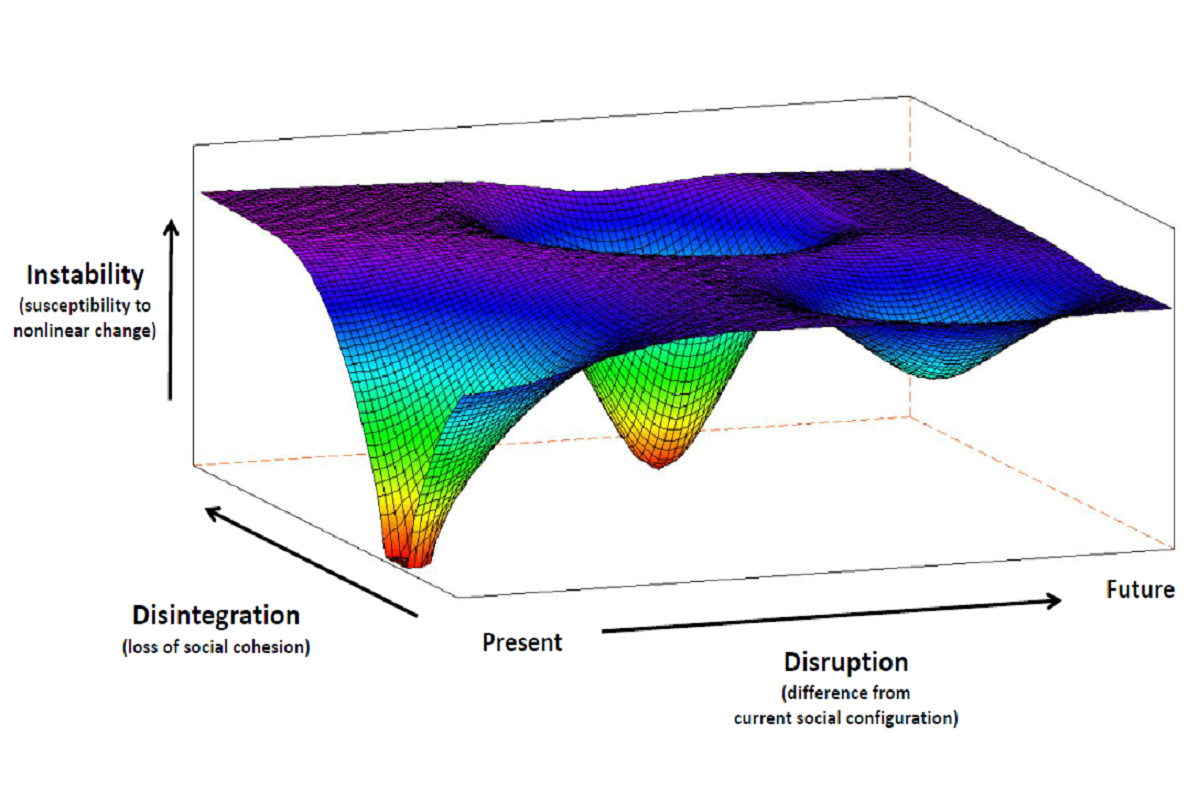GENERAL
system resilience
A report on the Limits to Growth: The World 3 computer model at 50 – what it got right and what it got wrong
Presentation for the Canadian Association for the Club of Rome (CACOR)
Getting to Enough: How we’ll solve the dilemma that’s destroying our world
Avoiding Mad Max and finding a path to a positive future
Hope has seen better days. But Thomas Homer-Dixon has written a book for ‘those who choose to fight’
The rising risk of nuclear war. Donald Trump’s 2016 election. Vast clouds of wildfire smoke. A global pandemic. These four things seem like apples and oranges, but they share one key similarity: each signals that something is going awry in the story of human progress.
Today’s Butterfly Effect is Tomorrow’s Trouble
Amid reports of sex scandals, lone-wolf terrorists and Middle East beheadings, it’s easy to miss small events. But they sometimes carry messages far larger than those in the headlines.
We’re Losing Our Past to Technology
A few weeks ago, as I was rummaging in a drawer in my father’s house, I came across a dozen reels of developed 8-millimetre film. I’d known the reels were in the house somewhere. But, for many years, I’d resolutely put the fact out of my mind.
Caught Up in Our Own Connections
But perhaps the most important factor contributing to our continuing vulnerability is something that we rarely recognize and that’s even harder to change: a belief that greater connectivity and speed in all aspects of society are always good things.
Brittle Cities Are Easily Broken
Response to comment: “If there’s another major attack, people will leave the city in droves.”
The Matrix of Our Troubles
with Sarah Wolfe | One could draw a parallel between the sight of thousands walking north on Yonge Street and the mass exodus of people on foot from lower Manhattan two years ago. But yesterday’s electrical failure did not claim thousands of lives, nor will it trigger a cascade of events leading to war. Nevertheless, what we saw in Toronto was poignant for what it represented: a people too interlocked with their technical choices, too resolute on efficiency gains, and too dependent on progress. Last Thursday’s blackout should be a powerful catalyst for change.
We Need a Forest of Tongues
Recently, the writer Ken Wiwa argued in this space that we shouldn’t worry too much about the loss of the world’s linguistic diversity. A recent study by the Worldwatch Institute, he reported, reported that half the world’s languages may soon disappear; especially vulnerable are those indigenous tongues spoken by only a few thousand people. This prospect has raised widespread alarm, because it’s generally thought that language and culture are closely related. So, when we lose a language, it’s assumed, we lose the associated culture.





